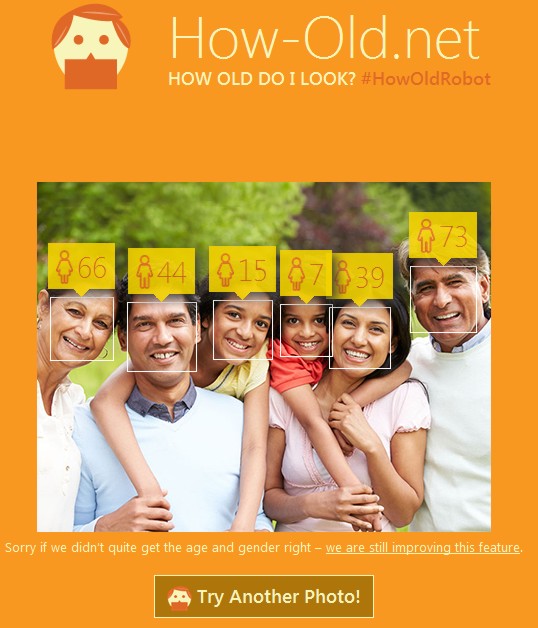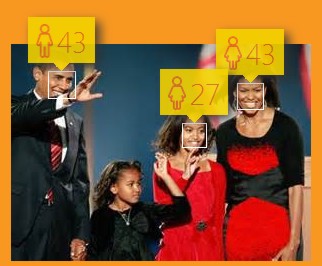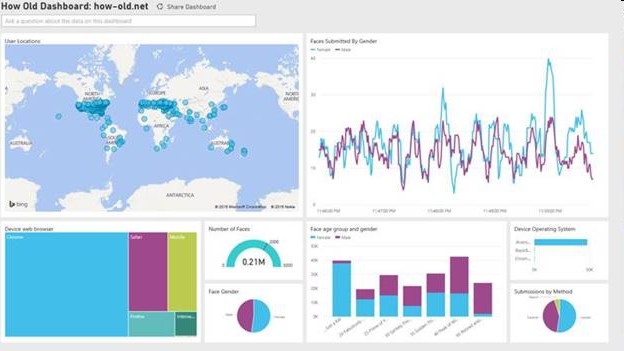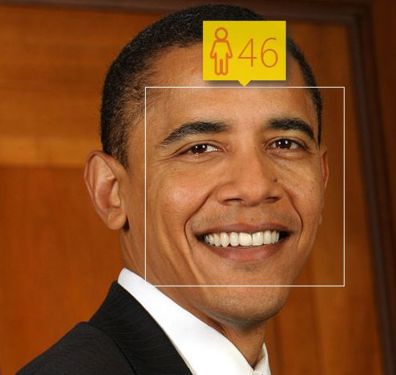| How Old - Fun, Wrong, Potentially Risky? |
| Written by Janet Swift | |||
| Sunday, 03 May 2015 | |||
|
A Microsoft Research project that lets users upload photos and estimates the age and gender of any faces it detects has attracted more attention than expected - not all of it complimentary. The How-Old.net site demonstrates of some of the capabilities of the Face API included in Microsoft's Project Oxford that was announced at Build, see MIcrosoft's Project Oxford AI APIs.
Attendees at Build were encouraged to visit the site by Microsoft corporate vice president Joseph Sirosh who introduced it as a "really fun" idea. He may have expected it to be a source of amusement but instead it backfired when people started to upload their own photos and discovered just how wrong its estimates could be. It demonstrates not only that machine learning has a long way to go before it's good at estimating age, but also that machine learning may not be the most politically correct way to go about answering the question "How Old Do I look". It might be better to employ and algorithm that built in all the rules of how to make a polite answer to that request - such as always knock a decade off the age of anyone over 28. Perhaps this particular neural network needs to learn some social skills before pronouncing how old people look. I tried it out on informal snaps taken on a family bithdays only to discover that not only did it make insulting estimates of our ages - adding an average of 10 years in most cases - it consistenly failed to notice me in the picture at all. The reason for this, I realized after several attempts, was that I was standing while others were sitting and my head wasn't neatly in a row with the others. Lighting seems to affect its judgement - photos of the same person taken from different angles resulted in widely differing estimates. Instead of using your own photos try out the result with some well known faces, something the Bing Search box provided on the site makes particularly easy:
In this 2008 photo of the Obama family, Barak was 47, wife Michelle was 44, Malia was 10 and Natasha, who face being lower and in profile wasn't detected was 7 respectively. This photo was taken in 2011 so the robot has the correct ages for Barak, is being complimentaryto Michelle by knocking ten years of her age, is still wildly out for Malia (around 13 in reality) and adds an extra 5 years to Natasha's age - which could also be taken as a compliment by a 10 year old.
Users of the site who have complained about the results have also queried why there's no facility to provide feedback to correct its estimates and refine its future performance but presumably as humans are notorious for lying about their age data collected in this way would not be trustworthy. There's also the thorny issue of privacy and data protection. A notice on How-Old.net intended to reassure those who uploaded their own photos states: P.S We don't keep the photo However the researchers who built the site do collect other data which has proved controversial. Corom Thompson and Santosh Balasubramanian originally posted on the TechNet blog their: "fun story of how we were expecting perhaps 50 users for a test but – in the end – got over 35,000 users and saw the whole thing unfold in real time". The post, which was removed from Technet site and reappeared in a modified version on How-Old.net originally stated that the pair were "playing" with the FaceAPIs and had "sent email to a group of several hundred people asking them to try the page for a few minutes and give us feedback" In the cleaned up version it is revealed that the researchers were building a demo for build and the emails were sent to people within Microsoft. The post also makes clear, however, that Thompson and Balasubramanian did intend to collect data and that they were as interested in Microsoft Azure streaming services and the business intelligence that Azure Stream Analytics (ASA) could deliver as they were with the machine Learning aspect of their experiment. They comment: This may be hard to believe but it took a couple of developers just a day to put this whole solution together, from the web page to the Machine Learning APIs to the real time streaming analytics and real time BI. This turned out to be a great example of the agility and creative power Azure developers get. which reveals how the demo was meant to showcase of several strands of Azure.
There has been criticism of the way in which Microsoft is harvesting information from users' metadata - and maybe there should be some box to tick so that users are aware what analytics the site is collecting. On the other hand gathering this type of data is nothing new - Microsoft is playing catch up to Google and Apple in this respect. As for age estimation from photos, that's not new either. Before it was bought by Facebook and subsequently closed, the Face.com API had a facility for returning three integers per face - minimum age, maximum age and estimated age - along with a confidence estimate for each, see Face Recognition Adds Age Estimation. As it is no longer available, there's no way to work out how Microsoft's API stacks up against it. As long as you are not paranoid about what Microsoft is doing with your metadata then the #HowOldRobot is both a lot of fun and a good demonstration of the potential of the newly released Face API delivered by the Azure cloud. Estimating age from facial details alone is a difficult task, one many humans find almost impossible and, yes, the AI needs more training. Gathering correct age and gender information for a large set of photos by crowdsourcing so the robot makes fewer gaffs could be a very good idea.
On a good day in 2005 (aged 44):
On a bad day in 2014 (aged 53):
If you take the point of view that these are estimates of how old some one looks then Mr President aged 20 years in less than 10 years of office. Anyone for President? More InformationRelated ArticlesMIcrosoft's Project Oxford AI APIs For The REST Of Us Face Recognition Adds Age Estimation Face.com Drops API and iOS App A Neural Network Learns What A Face Is Azure Machine Learning Service Goes Live Machine Learning Goes Azure - Azure ML Announced To be informed about new articles on I Programmer, install the I Programmer Toolbar, subscribe to the RSS feed, follow us on, Twitter, Facebook, Google+ or Linkedin, or sign up for our weekly newsletter.
Comments
or email your comment to: comments@i-programmer.info |
|||
| Last Updated ( Saturday, 06 June 2015 ) |








